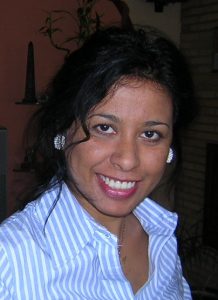Collaborations Between English and WGSS
Contact
The Words: Macalester's English Student NewsletterSenior Newsletter Editors:
Daniel Graham '26
Callisto Martinez '26
Jizelle Villegas '26
Paul Wallace '27
Associate Newsletter Editors:
Rabi Michael-Crushshon '26
by Alice Asch ‘22


Last spring, Jeanette Hughes, the previous coordinator of Macalester’s WGSS (Women’s, Gender, and Sexuality Studies) department, retired from her position. Jan Beebe, who has served as the English Department coordinator for the past ten years, gladly took over Jeanette’s role, and now coordinates both departments!
Jan said that this job addition was an excellent fit for her—she is also a licensed social worker, and has long been passionate about gender equity. Before Macalester, she worked in a variety of settings: residential treatment centers for women and children, domestic violence shelters, programs for runaway youth on the street, adoption services, and organizations for pregnant and parenting teenagers. Jan even mentioned that when she was a college student at St. Olaf, she ran a secret Planned Parenthood out of her dorm room! In light of all this, she was excited to expand her coordinator role to the WGSS department. Jan said she’s observed numerous shared interests among English and WGSS students, and noted a “natural overlap” between the two communities.
To get further insight into how the disciplines of English and WGSS intersect, I spoke to Professor Sonita Sarker, a faculty member in both departments—and chair of the latter. Professor Sarker, who earned her PhD in English literature, specializes in “literary and cultural studies in the context of neo/colonialism and neo/liberal globalization.”
Next spring, Professor Sarker will teach two classes: “Comparative Feminisms: Whiteness and Post/colonialisms” and “Feminist Reconstructions: Utopias, Masculinities, and Race,” both cross-listed with WGSS and English. She referenced the interdisciplinary “magic” of courses at the “crossroads” of the two departments. “English literature classes may approach the literary text as an object of the analyses of character, plot, theme, style, and raise philosophical questions about literary craft and method,” Professor Sarker said. Her courses, however, add another vital layer: using what she calls a “matrix of cultural analysis,” they examine “the significance of gender, race, class, sexuality, religion, nationality, and dis/ability, and raise questions about social, political, cultural, and economic issues.”
Many Macalester students choose to focus their studies in these fields, by majoring in one or minoring in the other, or even double-majoring in both. Professor Sarker enthusiastically encourages this—English and WGSS classes, she explained, give students the opportunity to critically engage with their own experience and the experiences of others. WGSS courses, specifically, provide concrete tools for “equity, justice, liberation, and positive social change.”
I had the pleasure of taking Professor Sarker’s “Whiteness and Post/colonialisms” class last year, and I can affirm that it did indeed lead to inspiring discussions and fulfilling engagement with the material. I would highly recommend it to any interested students!
The English and WGSS departments have co-sponsored several events so far this semester. In September, Harvard professor, former Macalester faculty member, and author Stephanie Burt shared her poetry with us. She also joined Professor Rachel Gold—whose classes are often cross-listed with English and WGSS—to speak about their webcomic in-progress, Boys Against The Current. A few weeks later, the two departments hosted “Career Night: Exploring Post-Grad Pathways.” Facilitated by Carrie Klaphake from the Career Center, it was tailored towards English and WGSS students. Professor Sarker said she hopes for even more collaboration between the two departments—in terms of both course offerings and campus events—in the future!